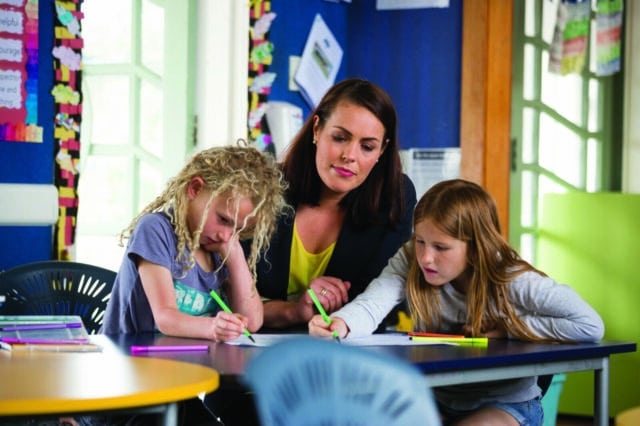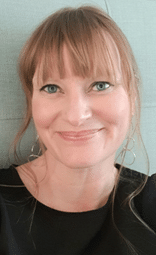Autistic students can often struggle in the educational setting but there is help available, particularly around transition, writes Nelson Bays’ resource teachers Fran Beullens and Cath Dyson.

Highly skilled itinerant teachers in the service have a wealth of experience which includes an understanding of autism.
They are experienced classroom teachers who have completed a Post-Graduate Diploma in Specialist Teaching and they scour the latest research and evidence of best practice.
There are 40 RTLB clusters across Aotearoa New Zealand, servicing schools from Year 1 to Year 10.
The service is grounded in an evidence-based and whānau centred approach, ensuring that teachers, the student and whānau work together in a solutions-focused way.
Nelson Bays cluster manager Lyn Evans says the service enables students to participate in learning, putting the student at the centre and being responsive to various levels of neurodiversity.
This might be looking at the classroom environment and how modifications could enhance student achievement. It might be working with a whole school, providing professional development for staff around neurodiversity, including teachers, teacher aides and school leaders. It could be working at a systems-level to ensure inclusive practice is at the heart of a school’s planning.
The support is culturally affirming, inclusive and collaborative. If a school requests an RTLB service for a student, the whānau can expect to be at the centre of decisions made; plans are made ‘with’ the student and whānau, rather than done ‘to’ them.
“RTLB take on the role of tying everything together and ensuring our tamariki have personalised plans where all adults in their lives are empowered to support them.” Karilyn Cribb, Learning Support Co-ordinator, Nelson.
How can resource teachers help?
Emma* has had two positive experiences with the Nelson Bays Resource Teachers for Learning and Behaviour Service (RTLB).
The first time her daughter, Claire, had just received her autism diagnosis and her school discussed feeling ill-equipped to meet Claire’s complex learning, social and sensory needs.
RTLB worked with whānau, teacher and key school personnel to develop a comprehensive plan for Claire’s teacher, ensuring that Emma was part of the planning process.
“The four-way communication process has seen some fantastic outcomes, my daughter is beginning to have a much more positive experience at school, feeling more settled, heard and understood,” said Emma.
There needed to be some fine-tuning of the initial plan the second time despite the fantastic work already being done in the school setting.
The resource teachers gathered student and whānau voices, conducted class observations and then created a new plan.
This enabled more brain breaks for Claire, incorporating daily piano playing – this helps her emotional regulation – and allowing her to play with Lego.
Claire’s teacher said the knowledge brought to the meetings by RTLB around Claire’s needs was very helpful.
“Claire will now tell me when a brain break is needed. The school purchased Lego for one of the brain break ideas. This has been very successful. Claire will often play with the Lego at lunchtime with other students.”
The service can also play a part in supporting whānau to work towards an autism diagnosis for a child.
This is often prompted by a school realising that a student has significant barriers to learning or it is simply unable to meet the child’s needs.
Nelson’s Leonel Bojorquez, 7, was having daily meltdowns and struggling to maintain peer connections at school.
His paediatrician diagnosed Leonel with attention deficit hyperactivity disorder (ADHD) but ruled out autism.
However, his mother Abby was convinced Leonel’s challenges at school and home were reflecting another underlying challenge that had yet to be identified and called on RTLB to help.
“Working one-on-one with the teacher and our family, RTLB was able to gather vital information about Leonel and his daily school experience.”
This then led to a diagnosis of autism.
“RTLB gave my child a voice and input into how school could be a more positive experience for him.” Abby Bojorquez, parent.
Even before a diagnosis happens, RTLB can be instrumental in enabling teachers to meet their students’ needs and make positive change.
Melanie Savill, a resource teacher from Nelson Bays, describes how she supported a teacher prior to their student’s diagnosis.
They worked together to introduce a predictable routine for the day to lessen the student’s anxiety.
In using a ‘When… Then’ strategy, they encouraged the student to complete a task, knowing a preferred task could then be negotiated.
“Helping to train teacher aides to meet an anxious student in the morning and go over the upcoming daily activities can set them up for success,” said Melanie.
“Just knowing that someone was on our side made all the difference. The RTLB guided us in terms of the most suitable school – without that our child could’ve ended up in a school that would not have met her needs. It is also reassuring that we can access RTLB again when our daughter transitions to secondary school.” Suzanne Levey, parent.
Autism and educational transitions
As any parent of an autistic child knows, there are many types of ‘Transition’ in the educational context. Most pose considerable challenges.
Nelson Bays cluster manager Lyn Evans says unless the student is completely prepared for the change, it can cause incredible upset.
Typical transitions in a child’s schooling are:
- The educational system itself – kindergarten to primary; primary to intermediate; intermediate to secondary.
- Changing classes at primary school e.g., Year 3 to Year 4 – new teacher, new students, new routines.
- Having up to seven transitions (between different subjects) in one day at secondary school.
- Daily – home to school and school to home.
- Diagnosis – from not having the diagnosis to being diagnosed with autism.
RTLB can provide support in any of these contexts.
One Nelson parent said having the service on board for her daughter’s transition from primary to intermediate was “priceless.”
They oversaw the transition process from the outset, acknowledging that her daughter was “different” and ensuring that she received the best support.
RTLB’s role was “validating and legitimising” her daughter’s unique qualities, allowing them to shine in the ‘right’ school setting.
How can you access Resource Teachers for Learning and Behaviour Service?
- First talk to your child’s teacher and ask for their thoughts.
- In some instances, asking to meet with the school Special Educational Needs Coordinator or Learning Support Coordinator can be helpful to instigate the RTLB referral process.
- Keep in close contact with your child’s teacher throughout the process.
- The assigned resource teacher will contact you and a meeting will be arranged.
- * Some names have been changed
Fran Beullens and Cath Dyson have recently been diagnosed with attention deficit hyperactivity disorder and autism.

Cath Dyson

Fran Buellens
More information
The following websites give a deeper understanding around the RTLB service and provide additional information around practice frameworks:


